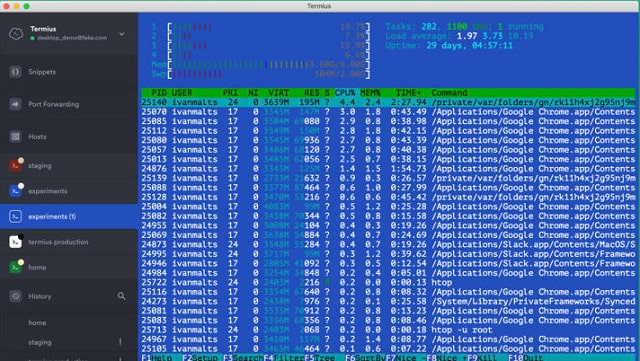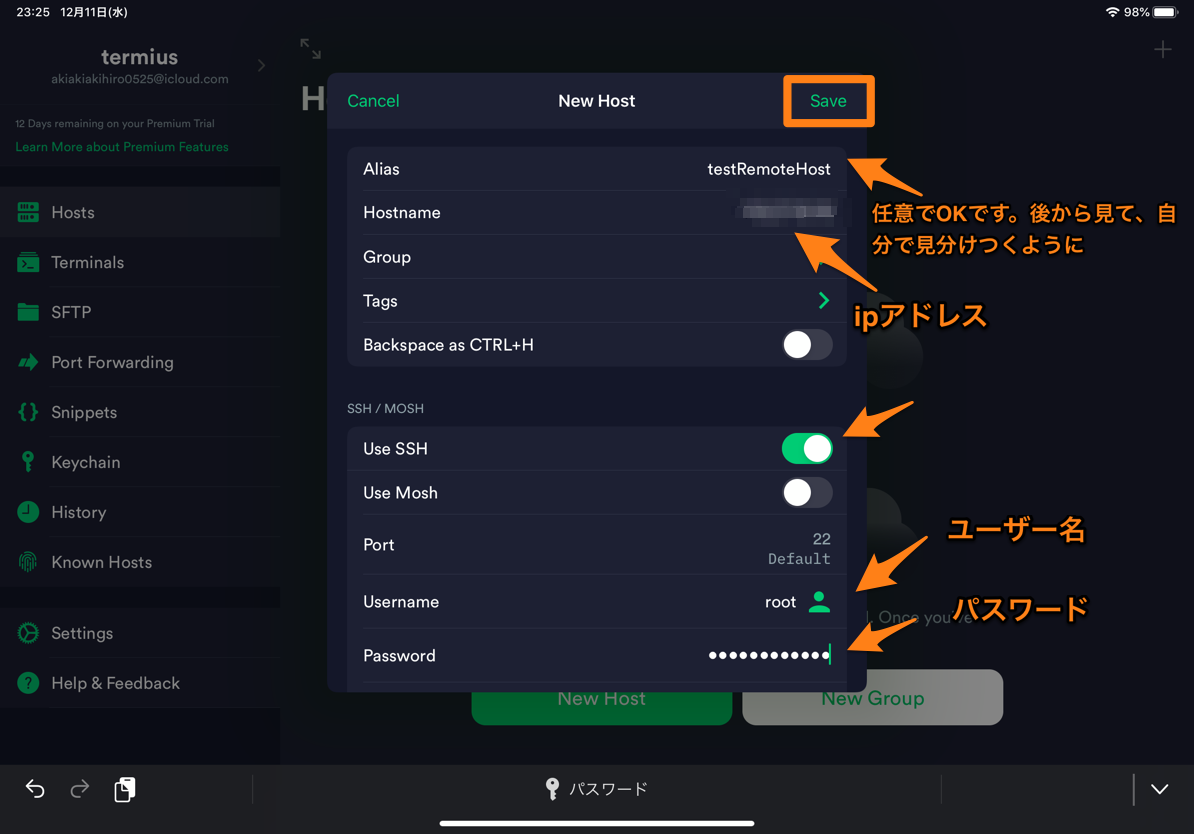

Key expires at Wed Nov 4 17:20:20 2015 MST Please specify how long the key should be valid. (3 ) DSA (sign only ) (4 ) RSA (sign only ) (1 ) RSA and RSA (default ) (2 ) DSA and Elgamal There is NO WARRANTY, to the extent permitted by law.
TERMIUS ALIAS URL SCHEME SSH FREE
This is free software: you are free to change and redistribute it.
TERMIUS ALIAS URL SCHEME SSH SOFTWARE
Gpg (GnuPG ) 2.1.8 Copyright (C ) 2015 Free Software Foundation, Inc. home/portmgr/public/monthly-reports on the cluster. home/core/public/monthly-reports on the cluster. Archives for these lists can be found in the files /local/mail/repository-name-developers-archive and /local/mail/repository-name-committers-archive on the cluster.) (Each project repository has its own -developers and -committers mailing lists. Ports/ Git (see also ).ĭevelopers (technically called all-developers), doc-developers, doc-committers, ports-developers, ports-committers, src-developers, src-committers. Src/ Git (see also ).ĭoc/ Git (see also ). Then at least Remote forwarding rule become looks nice.Ref*., universe*. (see also FreeBSD Project Hosts) That's a bit strange, but there we can use another logic: we're not forwarding traffic from our local server to remote, we are forwarding requests from remote server to local machine. Port to - remains as local just because Port from is already our remote port. Strange again, at least for me, because we forward our local port to external network with our remote server. Host to - our local hostname or ip address. And yes, you're right, if after Local rule you think that Port from is not intuitive label. Port from feels as local due to the same reason as Host from above, but is it? We remember strangeness of Port from from Local rule. But we're wrong here - it's 100% is our remote host, because we have to choose it from already added hosts. Host from feels as local, because we forwarding our local server to external network. Now let's look at Remote forwarding rule UI:ĭo you see here any difference here? Okay, excluding tab name. To fix that you need to swap values of Port from and Port to fieldsĭoes it feel strange for you? For me - yes, but explanation will be later. We forward nothing to port 3333 on local machine, but thinking that forwarded it to 3306įinaly we failed twice thanks to non-intuitive labels.Connecting to port 3306 on our remote server which is not used, because our MySQL working on 3333.If we fill all fields intuitively, we are:

We're trying to forward it to our local machine on default port 3306. In example: we have MySQL on remote server working on non-default port 3333. Just because Port from realy belong to our local machine and vice versa Port to is the port on remote server to which we want to connect. If we fill these fields intuitive, and after that goes to your server and check for listening ports, you will fail. If you don't agree with me about intuition - welcome to comments :D

Finally picture is that we forwards answers from remote Host from: Port from to local Host to: Port to When you see Host from and Port from intuition says that they both belong to remote server, the same is with Host to and Port to - they feels to belong local machine. Well, it looks understandable, but you will fail with forwarding, if you try to fill them intuitive. We will not talk about Dynamic forwarding(SOCKS proxy) cause UI of adding it is fully understandable: But the problem appears when you want to add first port forwarding. They behave like switches: once added, it can be enabled or disabled with double-click. In premium there are also data sync with SFTP, but our post is not about that.

Yes, of course we can look for introduction for ssh-aliases, config files and etc., but I guess most of users likes GUI apps and Termius very well here. Termius is cross-platform app, that provide us comfortable GUI for most of setups of SSH connection. Remember, that if you need to access target port not only from localhost, but also from other networks (local/global) you need to use 0.0.0.0 instead of 127.0.0.1 Termius


 0 kommentar(er)
0 kommentar(er)
